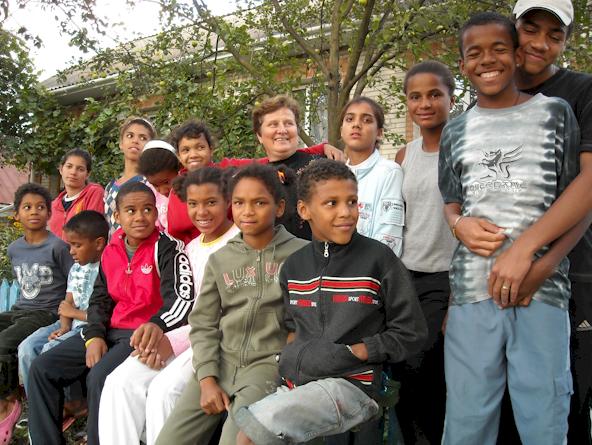 Family Portrait in Black and White follows the unique and turbulent story of Ukrainian super-mum, Olga Nenya. Shot by Julia Ivanova who spent three years following the story of Nenya and her unusual foster family, we are presented with a private and often chaotic study of a hectic household ran with love and a Stalinist determination.
Family Portrait in Black and White follows the unique and turbulent story of Ukrainian super-mum, Olga Nenya. Shot by Julia Ivanova who spent three years following the story of Nenya and her unusual foster family, we are presented with a private and often chaotic study of a hectic household ran with love and a Stalinist determination.
The documentary tracks the disjointed brood of 23 foster children who make up the Nenya family, and charts the dramas they follow as the orphans turn into boisterous, questioning teens. Their story is set against the backdrop of a small Ukrainian town filled with Slavic blue-eyed blondes, and with 16 of the orphans black or bi-racial their tale shows off the harsh realities of growing up in a community where race really does matter.
Despite there being no blood relation in the Nenya family, a strong connection remains thanks to the woman who chose to be their mother. The children constantly find themselves forced to defend themselves from racist neighbours, finding themselves constantly looked upon not just with curiosity, but with a deep-seated resentment and superiority.
Interestingly, the Ukrainian government offers an extremely limited support. It is left for Western countries to intervene, with a British charity providing their home and host families across Europe taking in some of the children throughout the Summer. The movie is both a document of her plight and a testament to her strength and resolve to keep the family together.
Family Portrait in Black and White is careful not to portray the self-assigned mother as any sort of saintly figurehead. Although it starts out as an inspirational tale of one woman’s stand against racism, the crux of the story is in Nenya’s overbearing nature. We experience the children’s dawning realisation that their “mother” may be unable to make the right decisions for their future, with life changing paths turned down in a well-intentioned but stubbornly old-fashioned way.
You get the sense that it’s simply the case that Nenya is protecting herself from being lonely by keeping her children close. Her strength of character is contrasted with an overbearing control, and it is this same control which serves as both a shelter and a prison for her family.

Diana has awarded Family Portrait in Black and White four torches of truth

















